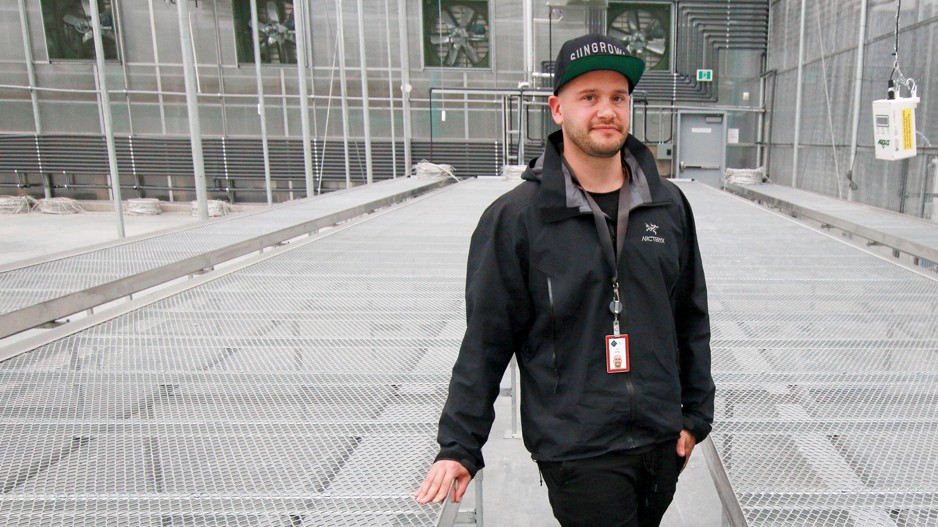You are here
Home 🌿 Marijuana Business News 🌿 'Hot and heavy' cannabis consolidation shaking up industry 🌿'Hot and heavy' cannabis consolidation shaking up industry

“It’s bare-knuckle boxing out there. Canada’s first few years of cannabis legalization have been off to a pretty rocky start.”
So says the CEO of B.C.-based licensed producer Tantalus Labs Ltd., as he points to billion-dollar write-downs, massive corporate largesse, half-built mega-facilities sitting abandoned and low-grade supply outstripping demand as some of the deeper issues facing the legal cannabis industry.
“Today there are no consistently profitable cannabis cultivators – big or small – in Canada. Zero,” said Dan Sutton. “Tantalus Labs is a healthy and growing business, and we’ve delivered in multiple consecutive quarters. We are growing our business well and then we often have to pay upwards of 25% of our top line revenue in excise taxes.”
It’s not what many players expected when they entered into the legal industry, and Sutton said government must consider a tiered tax system if legal players are to make a go of it and stay competitive against the illicit market
And compared with the markets in American states where recreational cannabis has been legalized, Canada remains over-regulated and over-taxed, he said. It’s a problem that may see Canada lose its first-mover advantage over other developed economies now carefully examining the potential for legalizing recreational cannabis.
“I think that what Canada has done, still to this day, remains a significant move in the global policy shift on cannabis, period,” said Deepak Anand, CEO of Materia Ventures, whose Canadian company facilitates access of legal cannabis to Europe.
But he said Canadian producers are at risk of being swept aside as Switzerland and European Union members such as Malta and Luxembourg pursue efforts to legalize recreational use of cannabis.
“So we are starting to see more of a global shift,” Anand said. “I think a lot of the European countries are very seriously looking at this, and even beyond that I think you will start to see more countries come on board.”
Another thorn in the side of the domestic industry is the way Canada’s Cannabis Act was written. It precludes domestic producers from importing or exporting for anything other than scientific or medical purposes, effectively cutting the country out of the emerging global market.
Meanwhile, at home, the industry has become increasingly consolidated during the past two years, with merger deals involving West Coast producers ramping up since the start of the year.
Ottawa-based Hexo Corp. (TSX:HEXO) is spending $235 million in an all-stock deal to acquire Vancouver’s Zenabis Global Inc. (TSX:ZENA). And earlier this month, Nanaimo-based Tilray Inc. (Nasdaq:TLRY) and Aphria Inc. closed a merger deal creating the country’s largest cannabis brand with 17% of the market.
“You see financial firepower combining with smaller brands to then create more fund-style operations from these large LPs [licensed producers],” said Sutton, who acknowledged his own privately-held company has been fielding interest from larger companies.
“Consolidation is happening hot and heavy right now, and I think it’s certainly going to continue through the end of this year.”
And just as the industry becomes more dominated by a smaller number of large players, Canadians’ own consumption habits have been changing rapidly over the past two years.
An April Statistics Canada report examining cannabis use in the previous year reveals 7.9% of Canadians reported daily or almost daily use of cannabis as of 2020’s fourth quarter. That’s up from 5.4% in 2018’s first quarter, prior to legalization.
British Columbians were the most active consumers during 2020’s fourth quarter, with 24.8% of respondents reporting having used cannabis at least once in the past three months. Just prior to legalization, that figure stood at 17.1% (also the highest proportion among provinces at that time). But the illicit market still appears active despite significant dents made in its market share since legalization in October 2018.
The Statistics Canada report shows 35.4% of respondents were acquiring cannabis via the illegal market by 2020’s fourth quarter compared with 51.3% in 2018’s first quarter, when many relied on cannabis provided to them by friends or family.
“The illicit market is still very much a concern,” Anand said, pointing out that Statistics Canada’s conclusions are based on self-reported data. “But by virtue of the number of licences that have been awarded and the amount of product that’s being put on the market, I think you are starting to see the price come down.”
420 Intel is Your Source for Marijuana News
420 Intel Canada is your leading news source for the Canadian cannabis industry. Get the latest updates on Canadian cannabis stocks and developments on how Canada continues to be a major player in the worldwide recreational and medical cannabis industry.
420 Intel Canada is the Canadian Industry news outlet that will keep you updated on how these Canadian developments in recreational and medical marijuana will impact the country and the world. Our commitment is to bring you the most important cannabis news stories from across Canada every day of the week.
Marijuana industry news is a constant endeavor with new developments each day. For marijuana news across the True North, 420 Intel Canada promises to bring you quality, Canadian, cannabis industry news.
You can get 420 Intel news delivered directly to your inbox by signing up for our daily marijuana news, ensuring you’re always kept up to date on the ever-changing cannabis industry. To stay even better informed about marijuana legalization news follow us on Twitter, Facebook and LinkedIn.




